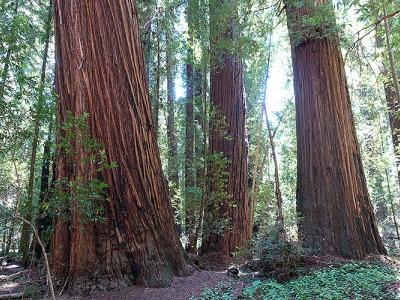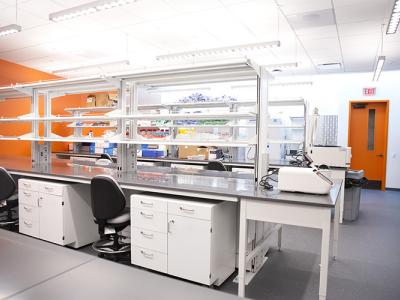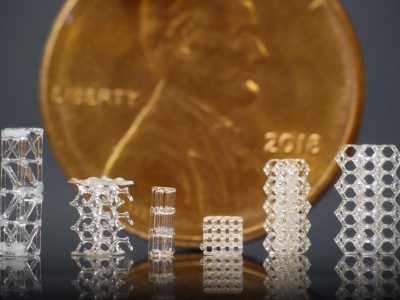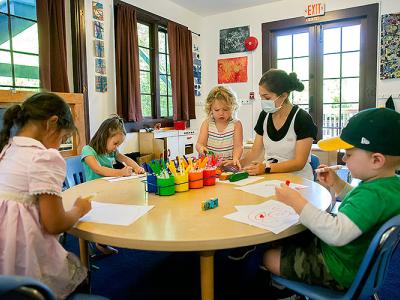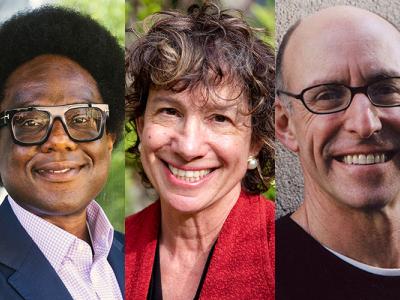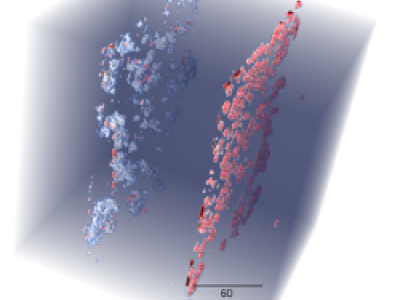Rediet Abebe, a UC Berkeley assistant professor of computer science, will be a member of the 2022 class of Andrew Carnegie Fellows, the Carnegie Corporation of New York announced April 26.
Research News
Learn more about UC Berkeley's researchers and innovators.
Showing 801 - 816 of 3512 Results
In episode 139 of Berkeley Talks, Damilola Ogunbiyi, CEO and Special Representative of the U.N. Secretary General for Sustainable Energy for All (SEforALL), gives the UC Berkeley Energy and Resources Group’s 28th Annual Lecture on Energy and Environment. In the March 31, 2022 talk, Ogunbiyi discusses how to drive a just, inclusive and equitable transition to affordable and sustainable energy for all, and how the Russia-Ukraine war is affecting energy markets around the world.
Nature is vitally important to the U.S. economy but we tend to take it for granted, doing little to measure the nation’s wealth of natural resources or their economic impact. But at a high-level White House meeting Thursday, Berkeley scholar Solomon Hsiang said that advanced technology is creating powerful new tools for measuring nature’s resources and their economic value.
Bakar Labs, the flagship life sciences incubator at UC Berkeley’s Bakar BioEnginuity Hub (BBH), has formed a partnership with the Cystic Fibrosis Foundation to provide free lab space and resources to startups that are focused on the application of gene therapy technologies that treat cystic fibrosis.
Powered by a $30 million challenge match grant from an anonymous alum, UC Berkeley’s College of Engineering has raised more than $74 million in gifts to transform the engineering student center into a vibrant hub of learning and discovery, cross-disciplinary collaboration, innovation and entrepreneurship.
Researchers at UC Berkeley have developed a new way to 3D-print glass microstructures that is faster and produces objects with higher optical quality, design flexibility and strength, according to a new study published in the April 15 issue of Science.
The California Department of Education has awarded a $5-million grant to the 21st Century California School Leadership Academy (21CSLA) State Center to ensure leaders for equity are prepared to implement the state’s groundbreaking rollout of Universal Prekindergarten (UPK).
The number of people leaving California for other states appears to have slowed during the last quarter of 2021, while the number of people moving into the state appears to be rebounding, according to new estimates released today by the nonpartisan California Policy Lab (CPL) using credit-bureau data through the end of 2021.
Andrew Dillin shared the 2022 Lurie Prize in Biomedical Sciences for work on the aging process. The prize, awarded annually by the Foundation for the National Institutes of Health (FNIH), recognizes outstanding achievements by promising scientists aged 52 or younger. Dillin shared the prize with Anne Brunet of Stanford University, who conducts parallel work on aging.
New research from Berkeley Public Health and the Department of Environmental Science, Policy, and Management published today in the Journal of Exposure Science and Environmental Epidemiology shows that community exposure to oil and gas wells is more likely in historically redlined neighborhoods, exposing residents to environmental stressors such as water and air pollution. The study results add to evidence that structural racism in government policy is associated with more oil and gas wells being situated in marginalized neighborhoods.
Three UC Berkeley faculty are among this year’s 180 John Simon Guggenheim Memorial Foundation fellows. The prestigious awards recognize scholars with impressive achievements in fields ranging from the natural sciences to the creative arts.
In a study published online this week in the journal Nature, University of California, Berkeley, engineers describe a major breakthrough in the design of a component of transistors — the tiny electrical switches that form the building blocks of computers — that could significantly reduce their energy consumption without sacrificing speed, size or performance.
Staunchly conservative Fox News viewers who spent a month tuning in to CNN instead reported a broad shift in their political opinions — until they returned to watching Fox, according to new research co-authored at UC Berkeley.
A team of researchers from Lawrence Berkeley National Laboratory (Berkeley Lab) and the University of California, Irvine (UC Irvine) recently moved this effort forward with the development of deep-learning algorithms to automate the quality control and assessment of new battery designs.
The Association for Computing Machinery (ACM), the world’s largest scientific and educational computing society, has awarded UC Berkeley professor Pieter Abbeel the 2021 ACM Prize in Computing for his foundational work in robot learning.
A video compiled from Fox News clips of former President Trump and his family urging his supporters to get vaccinated against COVID-19 proved to be a cheap and effective way to convince some vaccine skeptics to get their shots.



